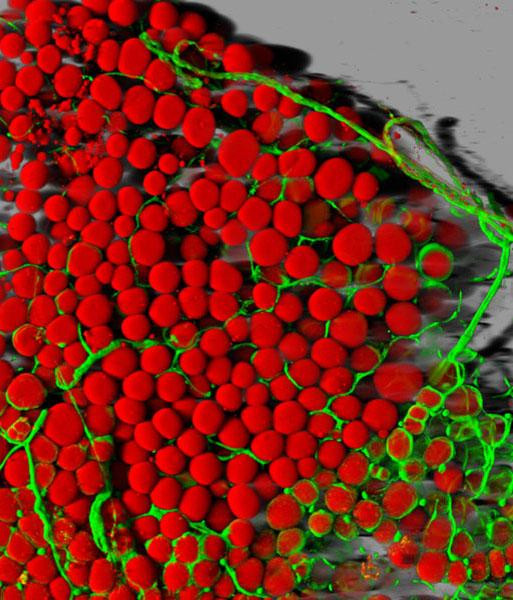Blocking fat transportation increases longevity in worms by 40%

Blocking the transportation of fat has the potential to increase longevity – in mice and worms at least. Scientists found blocking a protein that transports fats around the body increased worm lifespan by up to 40%.
While fats are essential to health, they also often play a role in death. Researchers from Brown University were looking at the relationship between the transportation of fats and lipids and longevity. They found the protein responsible for transporting fats also limits essential functions in cells that increase lifespan – so blocking them could lead to an increased lifespan.
Publishing their findings in the journal Autophagy, the authors first genetically blocked the production of the worm's yolk lipoprotein, called vitellogenin (VIT). After doing so, they lived up to 40% longer.
The data suggests VIT prevents a longer lifespan by preventing cells from remodelling fats for healthier purposes. By reducing the production of these proteins, fat can be reused in different ways – a process known as lipophagy. Too much VIT hinders lipophagy, the researchers said.
They then went on to look at the same process in mice. In mice and humans, the corresponding protein to VIT is apolipoprotein B (apoB). In mammals, apoB transfers fats away from the intestine and liver to be used and stored by other tissues. Previously, therapies have been developed to reduce apoB in order to prevent cardiovascular disease.
Louis Lapierre, senior author of the study, looked at another well-established model of increased longevity – a restricted diet. Previous research has shown how animals that eat less live longer. In their study, the team found mice placed on a calorie-restricted diet produced less apoB.
"In dietary-restricted worms and mice, expression of VIT and hepatic APOB (apolipoprotein B), respectively, are significantly reduced, suggesting a conserved longevity mechanism," they wrote. "Altogether, our study demonstrates that lipoprotein biogenesis is an important mechanism that modulates ageing by impairing autophagy and lysosomal lipolysis."
Lapierre said he believes the findings could one day be used to achieve longevity in humans. He said: "Since we see in the worm that we can extend lifespan by silencing this protein, we reason that that it could be a promising strategy to prevent age-related disease in humans."
© Copyright IBTimes 2025. All rights reserved.




















